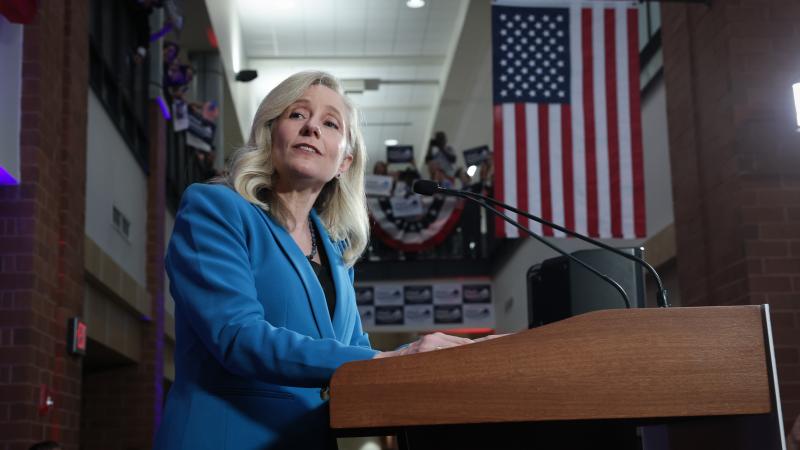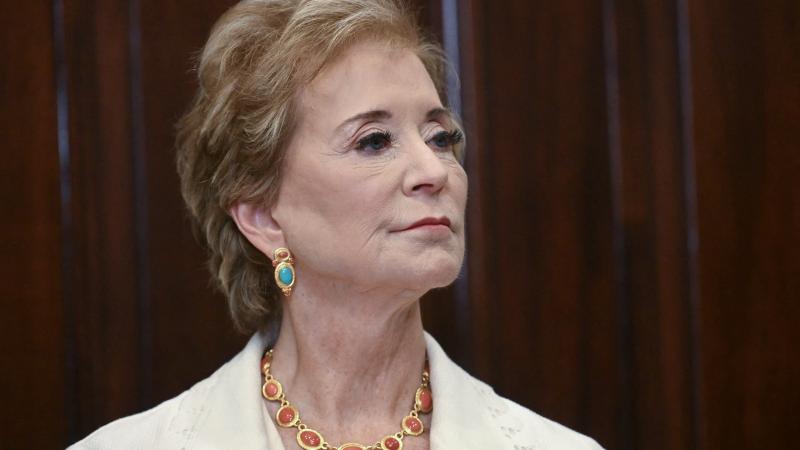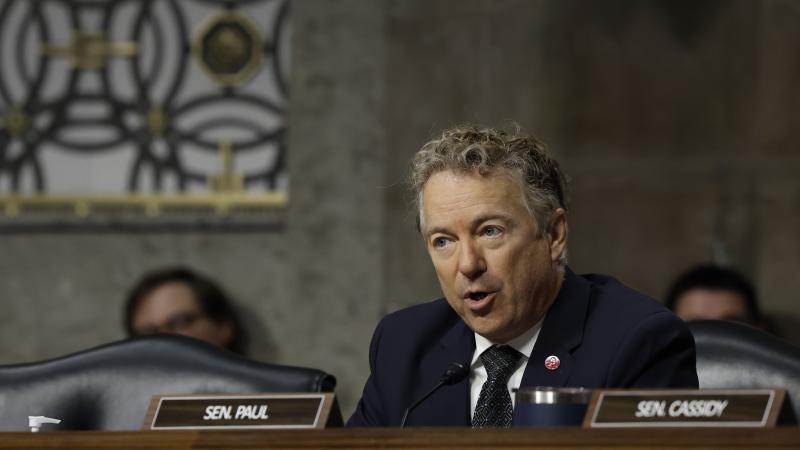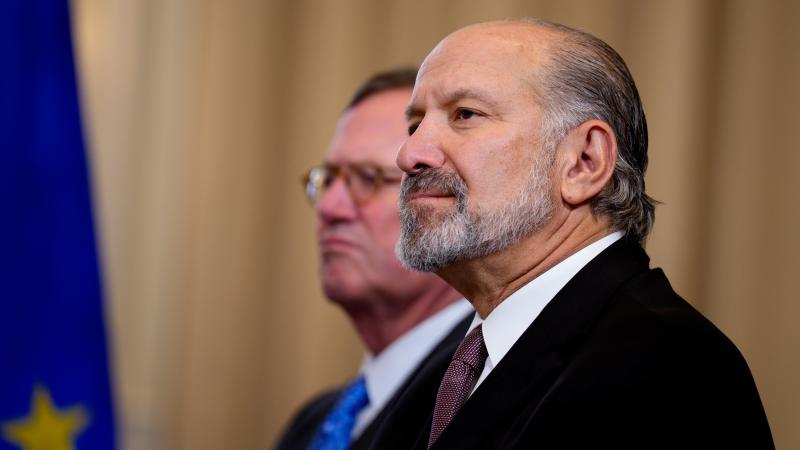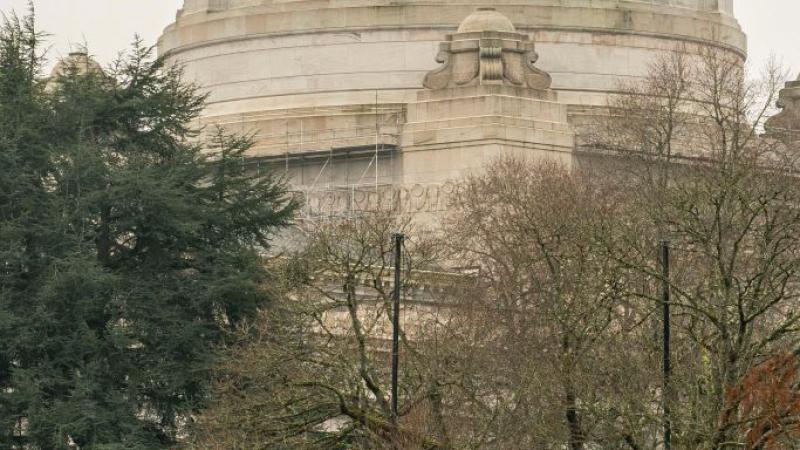SCOTUS liberals predict parade of horribles from restoring parental rights to LGBTQ lesson opt-out
Justice Clarence Thomas writes separately to question what benefit sex education and even more "novel" gender identity lessons have given kids, when Amish education has worked for hundreds of years.
America is either on the verge of a dark age for public education or the latest reaffirmation of core parental rights, according to dueling opinions by Supreme Court justices Friday – in a case that could decisively tilt the balance of power toward parents in some curricular decisions.
The high court's six conservatives, who fractured in two other decisions Friday, united behind Muslim, Catholic and Orthodox parents who sought to restore their right to notification and opt-out before Maryland's Montgomery County Public Schools exposed their children to LGBTQ "storybooks" in the English Language Arts curriculum.
The three liberal justices issued a parade of horribles, claiming the majority had sprung open a Pandora's box that would eviscerate administrative resources, set back children's learning and development and lead districts to preemptively censor curricula to avoid litigation.
The conservatives accused the liberals of ignoring "highly relevant" legal distinctions between older and younger children and "air-brushing the record" on what the storybooks actually promote, which is certain views on same-sex marriage and gender, and what MCPS told teachers to do: "reprimand any children who disagree."
The liberals went scorched-earth in a dissent longer than the majority opinion, accusing the conservatives of inventing a "novel rule [that] is squarely foreclosed by our precedent and offers no limiting principle," with "legion" flaws in reasoning, and repeatedly mischaracterizing the messages of the storybooks, with dozens more accusations.
MCPS twice told parents in the 2022-2023 school year they would be notified and allowed to opt out before the storybooks – which expose children as young as 3 to sex workers, kink, drag, gender transitions and same-sex child romance – were introduced in the ELA.
It backtracked a day after the second affirmation, claiming those state-ordered rules applied only to the "Family Life and Human Sexuality Unit of Instruction." MCPS's public rationale shifted to logistical hurdles to notice and opt-out after it got sued, but its internal communications didn't mention those concerns.
The dispute put the ACLU and Council on American-Islamic Relations on opposite sides, a rare occurrence.
CAIR led much of the public advocacy against the policy and supplemented the lawsuit with public records requests that exposed the gap between what MCPS told the court and its internal deliberations over how to sell the policy to parents.
"Today’s decision is not the outcome we hoped for or worked toward," MCPS and the Board of Education said jointly. "It marks a significant challenge for public education nationwide," but MCPS will "navigate this moment with integrity and purpose – guided, as always, by our shared values of learning, relationships, respect, excellence, and equity."
No First Amendment exception for curriculum designed to circumvent opt-outs
"A government burdens the religious exercise of parents when it requires them to submit their children to instruction that poses 'a very real threat of undermining' the religious beliefs and practices that the parents wish to instill," Justice Samuel Alito wrote for the majority, quoting the 1972 parental rights precedent Yoder.
"We have never confined Yoder to its facts," which pertained to Amish parents asserting a right to "withdraw their children from all conventional schooling" after eighth grade, so the district court should not have "breezily dismissed [it] as a special exception granted to one particular religious minority," the majority said.
SCOTUS has repeatedly reaffirmed parental rights over "religious upbringing" as recently as the 2020 ruling Espinoza, which struck down Montana's exclusion of religious schools from a tax-credit scholarship program, Alito said.
Schools cannot create welcoming environments, as MCPS invoked to defend the curriculum, "through hostility toward the religious beliefs of students and their parents" and the "insulting" proposition that "they must abstain from public education" their taxes pay for "in order to raise their children in their religious faiths," he said.
Recognizing parental rights "would be an empty promise if it did not follow those children into the public school classroom," Alito said, rebuking MCPS's argument that parents can still influence their children at home to counter the storybook lessons.
The majority dismissed the district's logistical concerns about storybook notice and opt-out as "a product of its own design," which unlike the human sexuality curriculum is not "discrete" and "predictably timed," in MCPS's words. "The Board cannot escape its obligation" to parents by "deliberately designing its curriculum to make parental opt-outs more cumbersome."
The high court instructed the district court to order MCPS to "notify [parents] in advance whenever one of the books in question or any other similar book is to be used in any way and to allow them to have their children excused from that instruction." The preliminary injunction will remain in effect "until all appellate review in this case is completed."
Kids did fine for hundreds of years without 'novel' gender lessons
Justice Clarence Thomas wrote a concurrence emphasizing the historicity and success of Amish education in contrast to compulsory education past eighth grade when Yoder was decided. While sex education is another "20th-century innovation," he said the MCPS curriculum and storybooks themselves are "novel" and explicitly ideological.
"Until very recently, young children have gone without sexual- and gender-identity education in school," Thomas wrote. "Nothing suggests that the countless generations who did not receive such education failed to 'mee[t] the duties of citizenship'" – quoting Yoder – even less so by not receiving the education in "early adolescence."
The ruling electrified conservative, parental rights, religious liberty, gender-critical feminist and contrarian gay groups, the latter two of whom argue MCPS policy establishes its own religion – gender ideology – and threatens "child safeguarding," respectively.
"This is a historic victory for parental rights in Maryland and across America," said the plaintiffs' lawyer, Eric Baxter at the Becket firm. "Kids shouldn’t be forced into conversations about drag queens, pride parades, or gender transitions without their parents’ permission."
Thomas More Society senior counsel Matthew Heffron said he "couldn’t be happier" with this "beautiful – even eloquent" discussion of religious education's importance to civic life.
"In line with American history, tradition, and judicial precedent, the court affirmed that school officials cannot act like their job is to replace parents and their beliefs," the Alliance Defending Freedom said. Catholic Association senior fellow Ashley McGuire said it confirms "parental rights and religious liberty do not end the moment a child steps into the classroom."
Giving 'a subset of parents the right to veto curricular choices'
Justice Sonia Sotomayor predicted "untold harms" in her dissent, joined by Justices Elena Kagan and Ketanji Brown Jackson. It withholds the adverb "respectfully" from the verb "dissent" and repeatedly appears to belittle the conservatives' understanding of Yoder and other precedents.
"Exposing students to the 'message' that LGBTQ people exist, and that their loved ones may celebrate their marriages and life events, the majority says, is enough to trigger the most demanding form of judicial scrutiny," Sotomayor wrote, suddenly subjecting "countless interactions that occur every day in public school" to potential lawsuits.
This will create "chaos" for schools nationwide as they grapple with notice and opt-out for "every lesson plan or story time that might implicate a parent’s religious beliefs," the dissent said. Related classroom disruptions and absences "may well inflict long-lasting harm on students’ learning and development."
School districts, especially the poorest, may simply delete "material that risks generating religious objections" rather than devote money to defending litigation or "tracking and managing student absences," Sotomayor wrote. The majority gives "a subset of parents the right to veto curricular choices long left to locally elected school boards."
Yoder is plainly inapplicable to the MCPS curriculum because the Wisconsin law the Amish parents challenged prohibited them from "engaging in religious teaching at home," and the "majority sets up a strawman" by reducing it to "compulsory school attendance," the dissent said: Nothing is stopping the MCPS parents from religious instruction at home.
The Facts Inside Our Reporter's Notebook
Links
- six conservatives, who fractured
- two other decisions
- LGBTQ "storybooks" in the English Language Arts curriculum
- they would be notified and allowed to opt out
- MCPS's public rationale shifted to logistical hurdles
- internal communications didn't mention those concerns.
- CAIR led much of the public advocacy
- Justice Samuel Alito wrote for the majority
- 2020 ruling Espinoza
- MCPS policy establishes its own religion
- threatens "child safeguarding
- Alliance Defending Freedom
